http://www.braveheartsriding.org
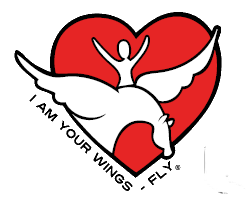
BraveHearts Therapeutic Riding & Educational Center
4950 Il Route 173
Poplar Grove, IL 61065
Mailing Address:
7319 Maxon Road
Harvard, IL 60033
Phone: 815-943-8226 MAKE AN INQUIRY
View our WEBSITE
View our GUIDESTAR PROFILE
EIN: 32-0034746Founded: 2007
View our PHOTO GALLERY
Profile Last Updated March 19, 2024Public Charity

The Guardian Seal of Transparency is awarded annually to recognize an organization's commitment to transparency and accountability by their willingness to make comprehensive data about their programs, horse care practices, and governance available for public scrutiny. The Guardian Seal of Transparency is NOT an endorsement.
Last Updated: July 26, 2023
BraveHearts Therapeutic Riding & Educational Center has not attained the Guardian designation for 2024.
MISSION & PROGRAMS
Mission:BraveHearts brings hope, joy and unlimited possibilities through the healing power of the horse. BraveHearts envisions being the premier model for connecting horses with people as a catalyst for wellness. Everyone will have the opportunity to discover healing horsemanship through the BraveHearts model. BraveHearts provides equine-assisted services with teams of expert staff, dedicated volunteers and therapy horses at multiple safe and caring facilities. In addition to serving children and adults, BraveHearts has the largest program in the nation providing innovative equine assisted services to meet the needs of our military veterans and their families.
Our organization conducts Equine Assisted Services in accordance with the EQUUS Foundation Guidelines on Qualifications of Organizations Conducting Equine Assisted Services (EAS).
Our organization provides community outreach and/or public education programs involving horses.
Our organization is directly responsible for the care and shelter of equines involved in our programs.
100% of our total programs and services are equine-related.
Our organization CURRENTLY uses satellite, overflow, foster, and/or outreach facilities which adhere to all the policies, procedures and practices of our organization. Facility information is provided for the organization's main, satellite and overflow facilities.
Summary of organization's recent accomplishments, goals, strategies to achieve the goals, and capabilities to meet the goals, including its long-term plans to sustain its programs:
In 2023, BraveHearts served 1,596 individuals through 14,908 hours of diverse equine-assisted services. The number of individuals served grows exponentially each year, with an 8% growth in individuals in 2023 compared to 2022. BraveHearts largest population served, military Veterans and their families, are each served at no charge. In 2023, BraveHearts provided 9,715 hours of equine-assisted services to 1,013 individual Veterans from 37 states across the U.S. This was a 16% growth in individual Veterans served compared to 2022. Additionally, BraveHearts provided 1,754 hours of equine-assisted services to 271 Veteran family members. All services provided to both Veterans and their family members were provided at no charge to the Veteran or their family.
BraveHearts is committed to not only sustaining programs for the future but continuing to develop opportunities to serve our communities. BraveHearts' Board of Directors developed a new Strategic Plan encompassing the next 3 years. The Strategic Plan will focus on key areas to sustain and further develop programs including board development, funding strategies, management infrastructure analysis, and overall program growth.
Equine Assisted Services (EAS):
Our organization provides the following Equine Assisted Services (EAS):
Therapeutic Mounted Services
Therapeutic Unmounted Services
Equine-Assisted Psychotherapy/Counseling (Mental Health)
Equine-Assisted Occupational Therapy/Physical Therapy/Speech-Language Pathology
10: Total number of Equine Assisted Service Providers at BraveHearts
17: Total number of Equine Assisted Service Providers at BraveHearts at the Bergmann Center
1. Amanda Bethards
FACILITY PARTICIPATION:
BraveHearts
BraveHearts at the Bergmann Center
RELATIONSHIP: Employee
SERVICES PROVIDED:
Therapeutic Mounted Services
Therapeutic Unmounted Services
DEGREES, LICENSES AND/OR CERTIFICATIONS
PATH International CTRI
2. Angie Colella
FACILITY PARTICIPATION:
BraveHearts
BraveHearts at the Bergmann Center
RELATIONSHIP: Employee
SERVICES PROVIDED:
Therapeutic Mounted Services
Therapeutic Unmounted Services
DEGREES, LICENSES AND/OR CERTIFICATIONS
PATH International CTRI
3. Ashley Kohanyi
FACILITY PARTICIPATION:
BraveHearts at the Bergmann Center
RELATIONSHIP: Independent Contractor
SERVICES PROVIDED:
Equine-Assisted Psychotherapy/Counseling (Mental Health)
DEGREES, LICENSES AND/OR CERTIFICATIONS
MAT, MSW Social Worker
4. Ben Jalove
FACILITY PARTICIPATION:
BraveHearts
BraveHearts at the Bergmann Center
RELATIONSHIP: Employee
SERVICES PROVIDED:
Therapeutic Mounted Services
Therapeutic Unmounted Services
DEGREES, LICENSES AND/OR CERTIFICATIONS
PATH International CTRI
5. Bill Mercurio
FACILITY PARTICIPATION:
BraveHearts
BraveHearts at the Bergmann Center
RELATIONSHIP: Employee
SERVICES PROVIDED:
Therapeutic Mounted Services
Therapeutic Unmounted Services
DEGREES, LICENSES AND/OR CERTIFICATIONS
PATH Intl. CTRI
6. Christa Kokott
FACILITY PARTICIPATION:
BraveHearts at the Bergmann Center
RELATIONSHIP: Independent Contractor
SERVICES PROVIDED:
Equine-Assisted Occupational Therapy/Physical Therapy/Speech-Language Pathology
DEGREES, LICENSES AND/OR CERTIFICATIONS
Occupational Therapist
7. Erica Smith
FACILITY PARTICIPATION:
BraveHearts at the Bergmann Center
RELATIONSHIP: Independent Contractor
SERVICES PROVIDED:
Equine-Assisted Occupational Therapy/Physical Therapy/Speech-Language Pathology
DEGREES, LICENSES AND/OR CERTIFICATIONS
Speech-Language Pathologist
8. Jamie Janssen Casey, Psy.D.
FACILITY PARTICIPATION:
BraveHearts
BraveHearts at the Bergmann Center
RELATIONSHIP: Employee
SERVICES PROVIDED:
Equine-Assisted Psychotherapy/Counseling (Mental Health)
Equine-Assisted Learning involving Personal and/or Professional Development
DEGREES, LICENSES AND/OR CERTIFICATIONS
Jamie is also trained in EAGALA, certified as an advanced child youth and family social worker and holds a doctorate in clinical psychology.
9. Jeanna Sorgani
FACILITY PARTICIPATION:
BraveHearts
BraveHearts at the Bergmann Center
RELATIONSHIP: Employee
SERVICES PROVIDED:
Therapeutic Mounted Services
Therapeutic Unmounted Services
DEGREES, LICENSES AND/OR CERTIFICATIONS
CTRI & CTRS
10. Jenny McQuillan
FACILITY PARTICIPATION:
BraveHearts at the Bergmann Center
RELATIONSHIP: Independent Contractor
SERVICES PROVIDED:
Equine-Assisted Occupational Therapy/Physical Therapy/Speech-Language Pathology
DEGREES, LICENSES AND/OR CERTIFICATIONS
Physical Therapist
11. Julia McIntyre
FACILITY PARTICIPATION:
BraveHearts
BraveHearts at the Bergmann Center
RELATIONSHIP: Employee
SERVICES PROVIDED:
Therapeutic Mounted Services
Therapeutic Unmounted Services
DEGREES, LICENSES AND/OR CERTIFICATIONS
PATH International CTRI
12. Kaleena Tolsma
FACILITY PARTICIPATION:
BraveHearts at the Bergmann Center
RELATIONSHIP: Independent Contractor
SERVICES PROVIDED:
Equine-Assisted Occupational Therapy/Physical Therapy/Speech-Language Pathology
DEGREES, LICENSES AND/OR CERTIFICATIONS
Speech-Language Pathologist
13. Kelly Dinsmore
FACILITY PARTICIPATION:
BraveHearts at the Bergmann Center
RELATIONSHIP: Independent Contractor
SERVICES PROVIDED:
Equine-Assisted Occupational Therapy/Physical Therapy/Speech-Language Pathology
DEGREES, LICENSES AND/OR CERTIFICATIONS
Kelly is also certified in Applied Behavior Analysis therapy
14. Kim Davis
FACILITY PARTICIPATION:
BraveHearts
BraveHearts at the Bergmann Center
RELATIONSHIP: Employee
SERVICES PROVIDED:
Therapeutic Mounted Services
Therapeutic Unmounted Services
DEGREES, LICENSES AND/OR CERTIFICATIONS
PATH Intl. CTRI
15. Meggan Hill-McQueeney
FACILITY PARTICIPATION:
BraveHearts
BraveHearts at the Bergmann Center
RELATIONSHIP: Employee
SERVICES PROVIDED:
Therapeutic Mounted Services
Therapeutic Unmounted Services
DEGREES, LICENSES AND/OR CERTIFICATIONS
PATH CTRI. In 2015, Meggan was named the PATH Intl. James Brady Professional Achievement Award due to her great dedication, proven leadership, high ethical standards and her demonstrated ability to develop and implement innovative, creative and effective ideas for the industry.
Meggan serves on the following committees: BraveHearts’ Finance Committee, BraveHearts’ Program & Development Committee, BraveHearts’ Fundraising Committee, BraveHearts’ Community Action Committee, PATH International Equine Services for Heroes Committee, PATH Job Task Development Committee and The Special Olympics of Illinois’ Equestrian Sports Management Team.
16. Terese Klinger
FACILITY PARTICIPATION:
BraveHearts at the Bergmann Center
RELATIONSHIP: Independent Contractor
SERVICES PROVIDED:
Therapeutic Mounted Services
Therapeutic Unmounted Services
Equine-Assisted Occupational Therapy/Physical Therapy/Speech-Language Pathology
DEGREES, LICENSES AND/OR CERTIFICATIONS
Terese is also a PATH Intl. Registered Therapist.PATH Intl. CTRI and Occupational Therapist
Overview of our programs involved with providing EAS to individuals with special needs:
BraveHearts Therapeutic Riding and Educational Center, known commonly as BraveHearts, is a 501c3 nonprofit established in 2002 by Marge Gunnar and world-renowned cardiologist and decorated Korean War Medic veteran Dr. Rolf Gunnar. BraveHearts is a Professional Association of Therapeutic Horsemanship International (PATH Intl.) Premier Accredited Center.
Programming operates out of two busy, year-round farms in Illinois, including an expansive equine-assisted services (EAS) program. In 2007 BraveHearts started services for veteran service members (VSM), serving all VSM at zero cost. In 2010 BraveHearts acquired its second facility in Poplar Grove, IL and began an outpatient clinic which offers physical, occupational, and speech therapy using hippotherapy as a treatment strategy for individuals in need and equine-assisted psychotherapy (EAP) to address mental health concerns under the direction of mental health providers.
BraveHearts is the industry leader in designing, implementing, and hosting numerous PATH Intl. educational opportunities for professionals to help increase the accessibility and quality of EAS for veterans and individuals with disabilities throughout the nation. BraveHearts has extensive experience in delivering EAS to VSM and individuals with various diagnoses.
BraveHearts offers innovative services to meet the needs of children, adults and military veterans in need. Services offered include therapeutic riding, physical, occupational and speech therapy using hippotherapy as a treatment strategy, foundation horsemanship, retreats, all-veteran drill team, horse shows, PATH Intl. certification mentoring, mustang training, and equine-assisted psychotherapy.
Common diagnoses of individuals served at BraveHearts includes: military sexual trauma (MST), traumatic brain injury, anxiety, depression, post-traumatic stress disorder, substance abuse, Down syndrome, Autism, cerebral palsy and spina bifida.
Community Outreach and/or Public Education:
BraveHearts is actively pursuing and building partnerships to further community engagement. BBraveHearts has a volunteer Community Action Committee, to focus on constant outreach to develop and grow referral pathways to increase awareness of our services. BraveHearts also has a committee specifically focusing on suicide prevention within our community. BraveHearts’ volunteers span across Illinois and Wisconsin with 494 volunteers who contributed 25,356 hours in 2023.BraveHearts offers nine tiers of volunteer trainings to help advance volunteer horsemanship and leadership and routine trainings to accelerate skills. We know that consistency in the handling of our horses is important for their overall health and for our program's success.
Each year BraveHearts hosts the Special Olympics Equestrian Games. This event reaches individuals all across the state. Additionally, BraveHearts has a committee specifically to help spread awareness of equine assisted services offered at BraveHearts. Cub scouts, girl scouts, various corporations, etc. all regularly request tours of BraveHearts.
Research/Medical Use of Equines:
Our organization has never made, and would not ever consider making, equines available for research studies or medical training that involves invasive procedures and/or that which may cause pain or suffering to the equine.
Religious Affiliation:
Our organization does not promote religious education, religious purposes, or a specific religious faith or use donations for religious education or religious purposes; require participants to be of a certain faith; require participation in religious, instruction, activities or services; or require participation in prayer, worship, religious instruction or other religious activities as a condition of receiving social or secular services offered.
Auction Donation:
Our organization has never allowed, or would not consider allowing, an equine to be sold, transferred, released, or otherwise placed into possession of any person or organization that would cause or allow the equine to be sold at auction for slaughter.
POLICIES: ACQUISITION
Our organization acquires horses/equines from the following source(s):
Donation
Purchase from Owner
Auction
Kill pen/Feedlot
Our organization does not acquire horses/equines from the following source(s):
Lease
Return
Surrender
Seizure
Abandonment
Our organization will accept the following:
Geldings
Mares
Only Stallions to be castrated
Not Checked:
Pregnant Mares
Foals
Stallions
Additional information about our acquisition policies and practices:
We are open to any horse if we can help the horse develop and give him/her a purpose in which he or she would be successful. We also watch a budget closely to make sure we have the means to care for any animal we take in to the program. We are well versed in management and how much care and expense some horses require. We always want to make sure any we take in we can fully and properly meet all their needs.
POLICIES: INTAKE, ASSESSMENT & TRAININING
Prior to a horse being accepted and/or arriving at the facility, the organization requires the following with respect to the health status of the horse:A current Coggins
Vaccination records that have been administered within the last 12 months
If health records are not available or are out-of-date, the owner is responsible for having vaccinations administered.
If health records are not available or are out-of-date, our veterinarian will administer appropriate vaccinations
A health certificate signed by a veterinarian and dated no more than seven days prior to arrival is provided to our organization either prior to or upon arrival of the equine attesting to the health status of the equine
Prior to a horse being accepted and/or arriving at the facility, the organization has the following policies in place:
The owner of a potential equine is interviewed over the phone or in person prior to seeing the equine
The equine is evaluated at its place of residence
The owner completes an application/contract which constitutes the agreement between the owner and our organization
The owner is financially responsible for the shipping of the equine to and from the organization
Equines are on trial up to 60 days
The trial period may be reduced based on the equine's progress
During the trial period, the organization accepts total financial responsibility for the care of the equine, including board, feed, shoeing and any necessary veterinary care
During the trial period, the organization accepts financial responsibility for the care of the equine, including board, feed, shoeing and any necessary veterinary care, up to a fixed amount agreed upon by the organization and the owner
The trial period may be terminated by either the organization or the owner for any reason
Equines are not taken on trial
Equines are on trial for up to 30 days
Equines are on trial for 60 or more days
During the trial period, the owner/donor is financially responsible for the care of the equine, including board, feed, shoeing and any necessary veterinary care
Following arrival of the equine at the facility, the following is performed:
Physical examination by a veterinarian upon arrival
A Henneke Body Conditioning Score or other body conditioning score is assigned
Physical examination by trained barn staff
Photographs are taken of each equine upon arrival at the facility and kept with the equine's health records
Physical examination by a farrier
Coggins test
Vaccinations
De-worming
Physical examination by a dentist
Blood work other than Coggins
Fecal test
The equine is scanned to check for a microchip
The equine is microchipped if the scan indicates that there is no microchip
Upon intake, the organization has the following quarantine policy in place:
The equine is confined to a designated and separate area for isolation and quarantine at the facility for a prescribed period of time
The equine is confined to a designated and separate area for isolation and quarantine off-site for a prescribed period of time
The equine is not quarantined
The typical length of quarantine is: More than 30 days
Horses are assessed for following skills and behaviors:
Retrieval from a pasture/paddock
Leading with a halter and lead rope
Temperament, disposition and attitude, such as rated from very calm to very high spirited
Saddling
Bridling
Lunging
Loading onto and unloading off a trailer
Mounting and dismounting
Riding at the walk
Riding at the trot
Riding at the canter
Riding by a beginner and/or unbalanced rider
Tolerance to unusual objects and loud noises
Known vices, i.e., cribbing, biting, kicking, weaving, stall walking, etc
Grooming
Jumping
Driving (Pulling a carriage)
Bathing
Clipping
Tolerance to multiple handlers at the same time
Our organization has the following policies and procedures in place pertaining to the ongoing assessment of horses in its care:
Physical examination by a veterinarian at least annually
The Henneke Body Condition score or other body conditioning score is updated at least annually
Equines at our facility may be treated by an equine chiropractor
Equines at our facility may be treated by an equine massage therapist
Equines at our facility may be treated by an equine nutritionist
Photographs are taken of each equine monthly and kept with the equine's health records
Photographs are taken of each equine annually and kept with the equine's health records
Equines at our facility may be treated by an equine acupuncturist
Our organization evaluates at least annually and maintains a written record of the weight-carrying and workload limitations for each equine that is ridden
Our organization does not evaluate the weight-carrying and workload limitations for each equine that is ridden
No equines are ridden; not applicable
The following variables are considered in determining the weight-carrying and workload limitations for each equine that is ridden:
Equine age, weight, breed, body condition, fitness, balance, health and soundness
Equine conformation to include the top line, length of back, strength and width of loin, bone density (measured by the circumference of the cannon bone just below the knee)
Size, shape, condition and angle of the hooves
Participant weight, height, body proportions, balance, fitness and riding skills as well as behavioral issues and safety concerns
Weight and proper fit of the saddle and other equipment
Nature and pace of work, repetitive or varied, radius of turns, degree of incline and regularity of footing when equine is subject to maximum weight-carrying capacity
Seasonal impact on the equines' workload and weight-carrying capabilities and limitations
Terrain and footing in the working environment
Duration and frequency of working sessions, as the frequency with which an equine is subjected to maximum weight carrying and/or workload
Temperature and/or weather conditions
Our organization does not evaluate the weight-carrying and workload limitations for each equine that is ridden
No equines are ridden; not applicable
Horses provided formal training (groundwork or riding): As needed; no set schedule
Additional information about our intake, assessment & training policies and practices:
We let horses settle in first and then begin conditioning and training. We have charts we utilize for each horse on what he is comfortable and confident in completing each area.
POLICIES: BREEDING
The organization has the following policies related to breeding and stallions:Our main facility where our organization conducts its programs does NOT breed equines.
One or more of the facilities where our organization conducts its programs, including foster facilities, breeds equines
One or more of the facilities where our organization conducts its programs, including foster facilities, are permitted to house stallions
Additional information about our breeding policies and practices:
BraveHearts is not in the breeding business.
POLICIES: EUTHANASIA
The organization has the following policies related to euthanasia:Our organization will never have an equine euthanized for space
Our organization will have an equine euthanized upon the recommendation of the veterinarian after all reasonable treatment options have been explored
Euthanasia is done on site when possible to decrease trauma from transport
Disposal of the carcass is handled within 24 hours
Our organization will never have an equine euthanized under any circumstances
Our organization will have an equine euthanized upon the recommendation of the veterinarian if the equine is a threat to itself, other equines, or people
Euthanasia is done at the veterinarian's facility
The following are authorized to administer the procedure for your organization in accordance with state laws:
Veterinarian
A certified euthanasia technician
Senior staff with appropriate training
Employee of animal control shelter or humane society with appropriate training
Veterinary student under the supervision of a licensed veterinarian
Not applicable. Our organization prohibits euthanasia under any circumstances
POLICIES: RE-HOMING
Re-homing Agreement not applicable.Our organization has the following re-homing (adoption/purchase) policies and procedures in place:
The organization does not re-home equines under any circumstances; our organization retains custody of our equines and ensures care of the equines for their lifetimes.
Our organization has the following policies and procedures related to horses that need to be retired, are no longer able to contribute to the mission of the organization, and/or are no longer manageable:
The organization does not re-home equines under any circumstances; our organization retains custody of our equines and ensures care of the equines for their lifetimes.
Equines may remain at our organization for their lifetimes
Equines may be returned to their owners
Equines may be found suitable homes by our organization
Equines may be sent to auction
In the case an equine is unmanageable and demonstrates repeated dangerous behaviors, the equine may be euthanized upon the recommendation of the veterinarian
In the case an equine is unsound and/or unhealthy and cannot be treated to relieve suffering, the equine may be euthanized upon the recommendation of the veterinarian
If a suitable home cannot be located within 12 months, the equine may be euthanized
The organization will accept financial responsibility for equines in the current care of the organization that need to be retired or are no longer able to contribute to the mission of the organization if all alternatives have been explored to find the equine an appropriate placement and space is not available for the equine to remain at the organization.
Additional information about our rehoming policies and practices:
NA
EQUINE CARE & SHELTER/FACILITY INFORMATION
Total facilities at which our organization cares for and shelters horses used in our programs: 2Our organization CURRENTLY uses satellite, overflow, foster, and/or outreach facilities which adhere to all the policies, procedures and practices of our organization. Facility information is provided for the organization's main, satellite and overflow facilities.
BraveHearts
7319 Maxon Rd Harvard IL 60033
Contact: Meggan Hill-McQueeney
Contact's Phone: 847-366-4571
Contact's Email: meggan@braveheartsriding.org
Currently operational
Total number of horses/equines currently involved with your programs, under your care, and/or owned by your organization at this facility: 24
Total number of horses at this facility INCLUDING those counted above: 24
Maximum capacity of horses at this facility: 40
Does your organization own, lease or use a part of this facility? Own
Provide the contact information for the individual or organization responsible for investigating abuse in the county where the facility is located, including mailing address, email address, and phone information.
Hooved Animal Humane Society 10804 McConnell Road Woodstock, IL 815-337-5563 60098 815-337-5563
Does your organization conduct Equine Assisted Services (EAS) at this facility in accordance with the EQUUS Foundation Guidelines on Qualifications of Organizations Conducting Equine Assisted Services (EAS)? Yes
Total number of Equine Assisted Service Providers AT THIS FACILITY, including instructors, specialists, therapists, counselors, coaches and/or facilitators (full-time, part-time, volunteer, independent contractors, and/or providers accompanying clients) that conduct Equine Assisted Services (EAS) in accordance with the EQUUS Foundation Guidelines on Qualifications of Organizations Conducting Equine Assisted Services (EAS) AT THIS FACILITY: 10
Equine Assisted Service Providers Assigned to this Facility: (see Equine Assisted Service Provider Section below for details)
1. Amanda Bethards
2. Angie Colella
3. Ben Jalove
4. Bill Mercurio
5. Jamie Janssen Casey, Psy.D.
6. Jeanna Sorgani
7. Julia McIntyre
8. Kim Davis
9. Meggan Hill-McQueeney
10 -> 9 - The total number of Equine Assisted Service Providers entered for this facility does not match the number of Equine Assisted Service Providers assigned to this facility under in the Equine Assisted Service Provider Section
BraveHearts
Veterinarian Information
Veterinarian: Dr. Vacek
Clinic Name: Kendall Road Equine Hospital
10N051 Kendall Rd
Elgin IL 60124
Phone: 847-464-5598
Overview: BraveHearts (*Main)
Total number of horses/equines currently involved with your programs, under your care, and/or owned by your organization at this facility: 24
Total number of horses at this facility INCLUDING those counted above: 24
Maximum capacity of horses at this facility: 40
Total acreage dedicated specifically to the horses: 22
Our organization has use of the following at this facility:
Structures/Barns: 5 Run-in sheds: 15
Pastures: 3 Paddocks/Pens/Turnout Areas: 20
Uncovered Outdoor Rings: 1 Covered Outdoor Rings: 0 Indoor Rings: 2
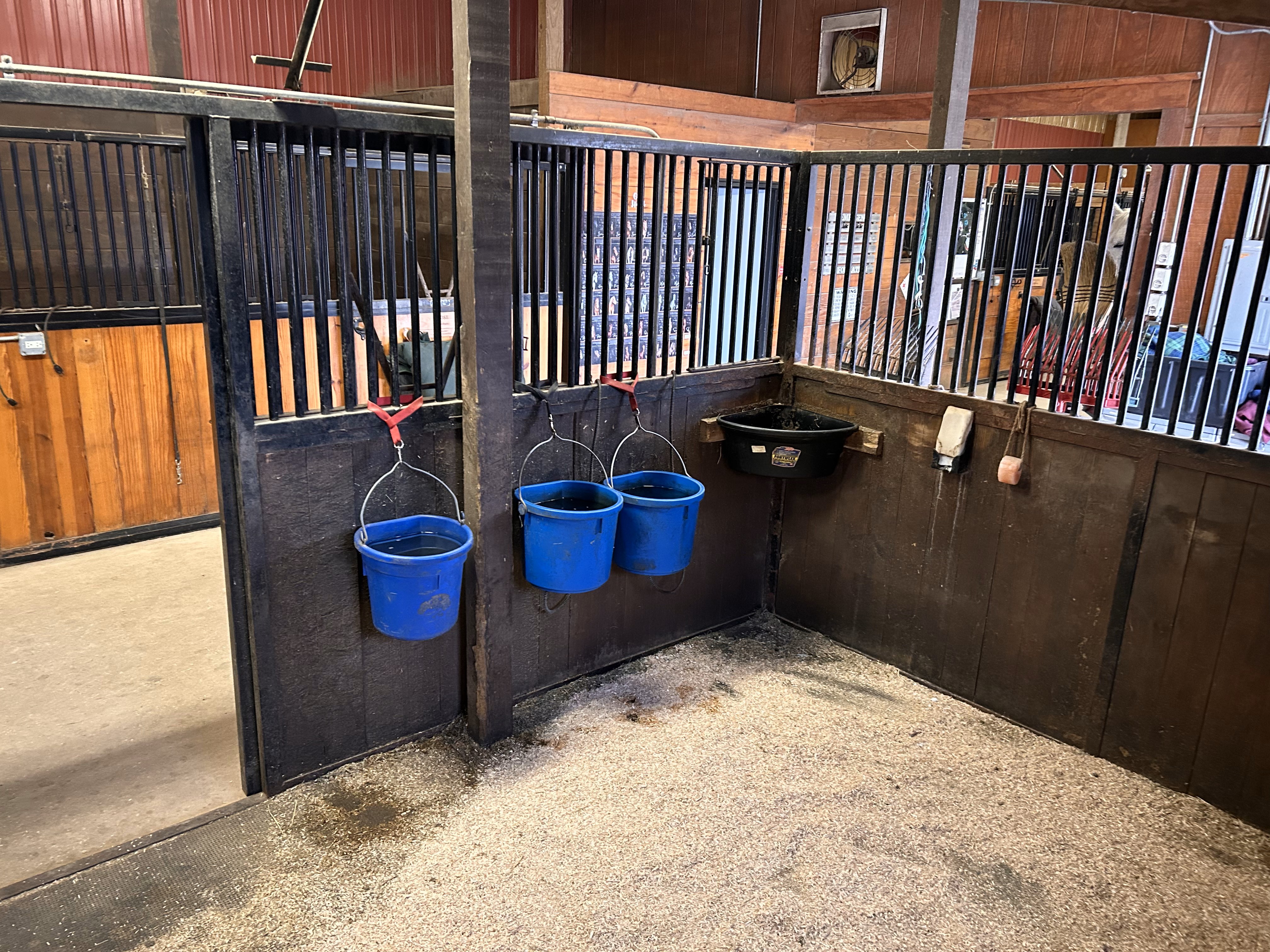
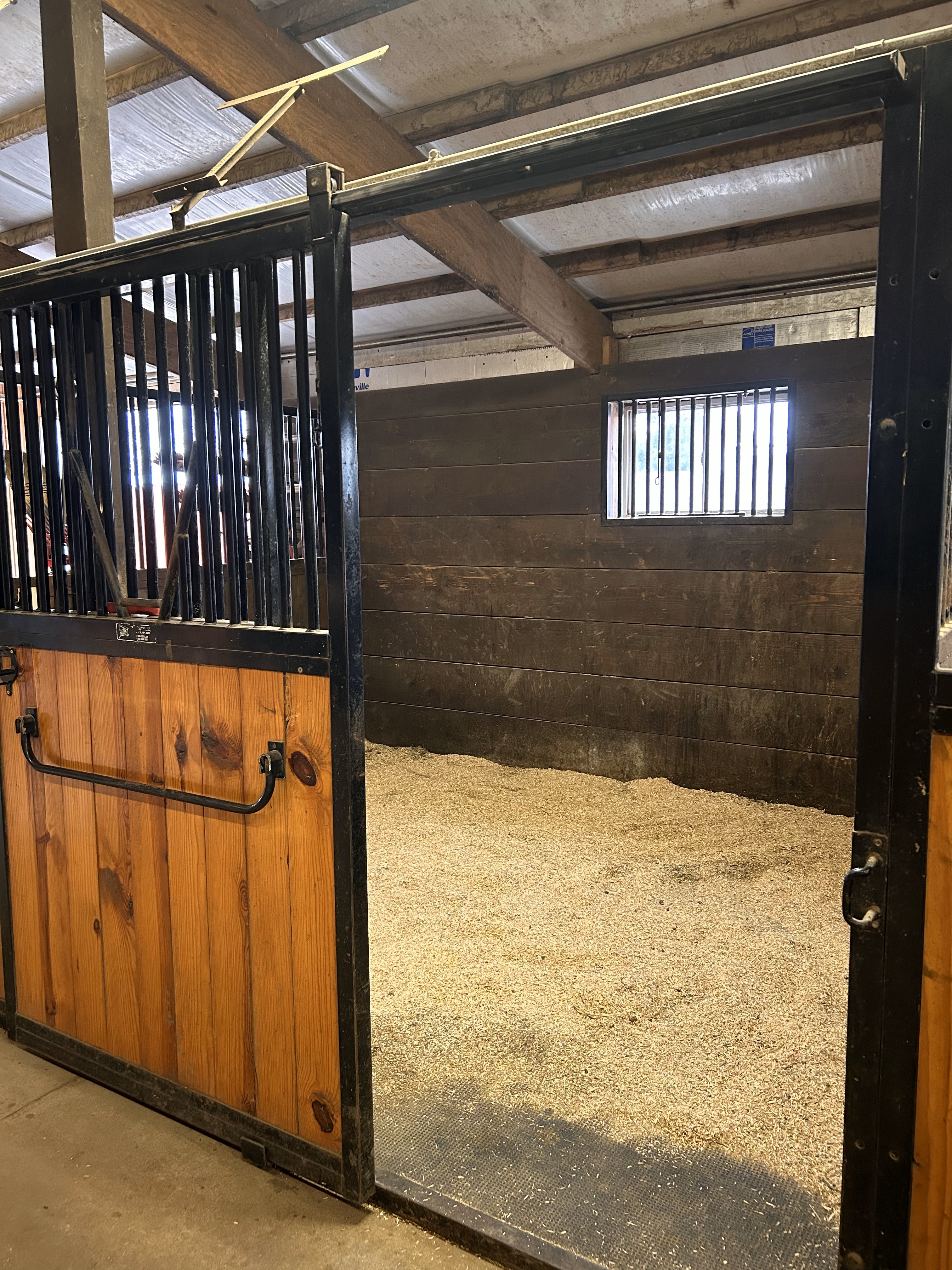
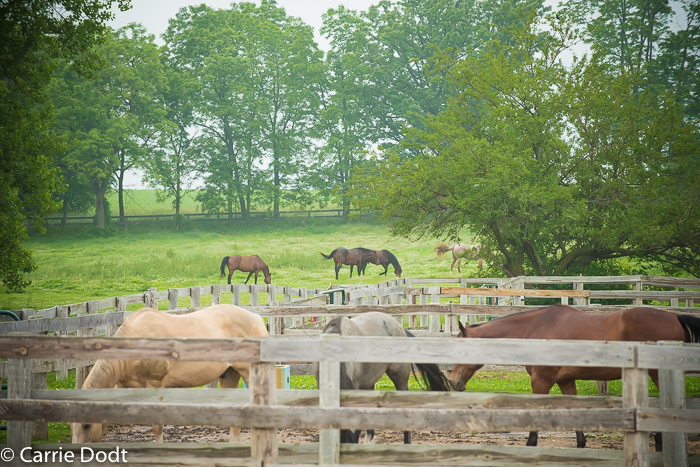
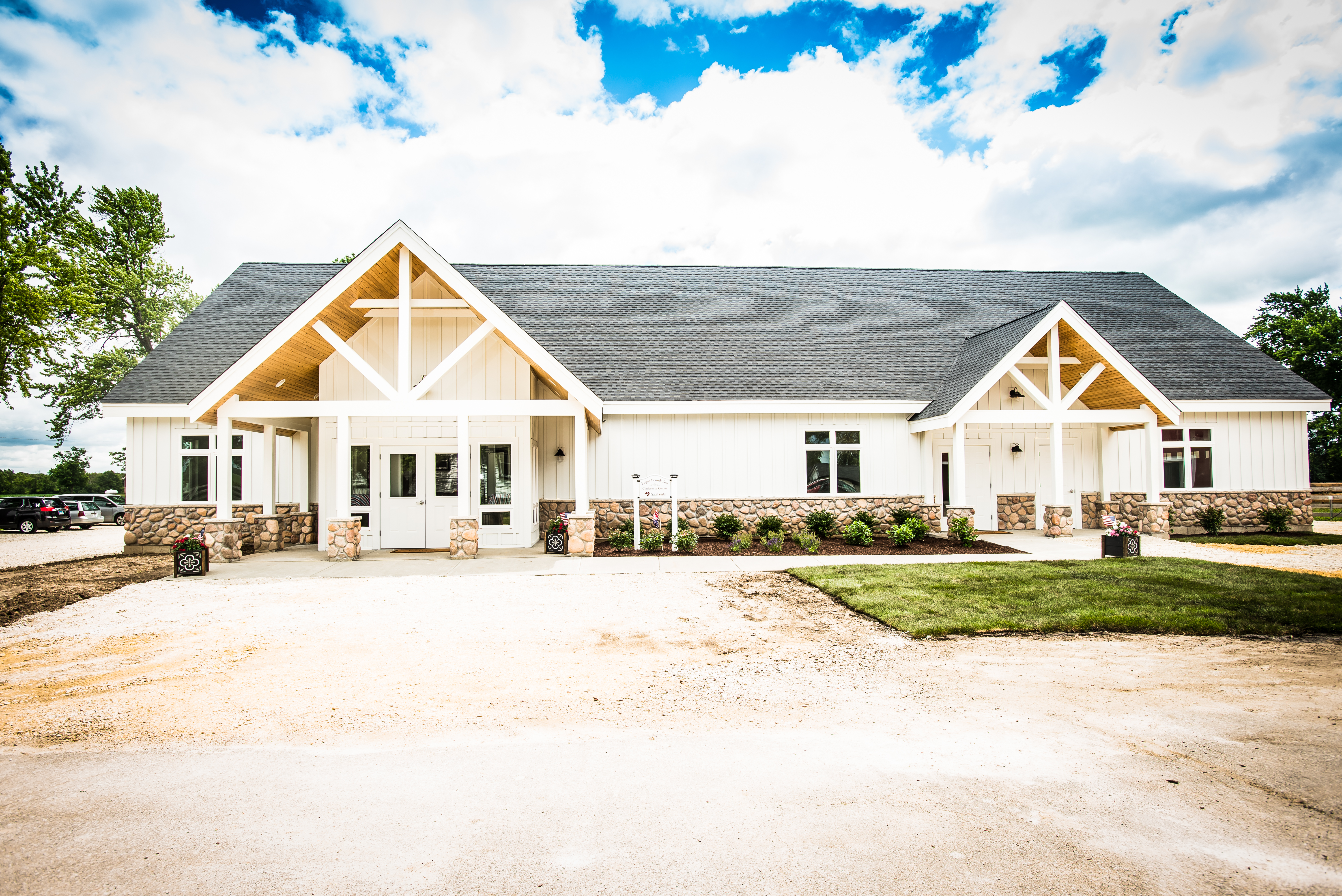
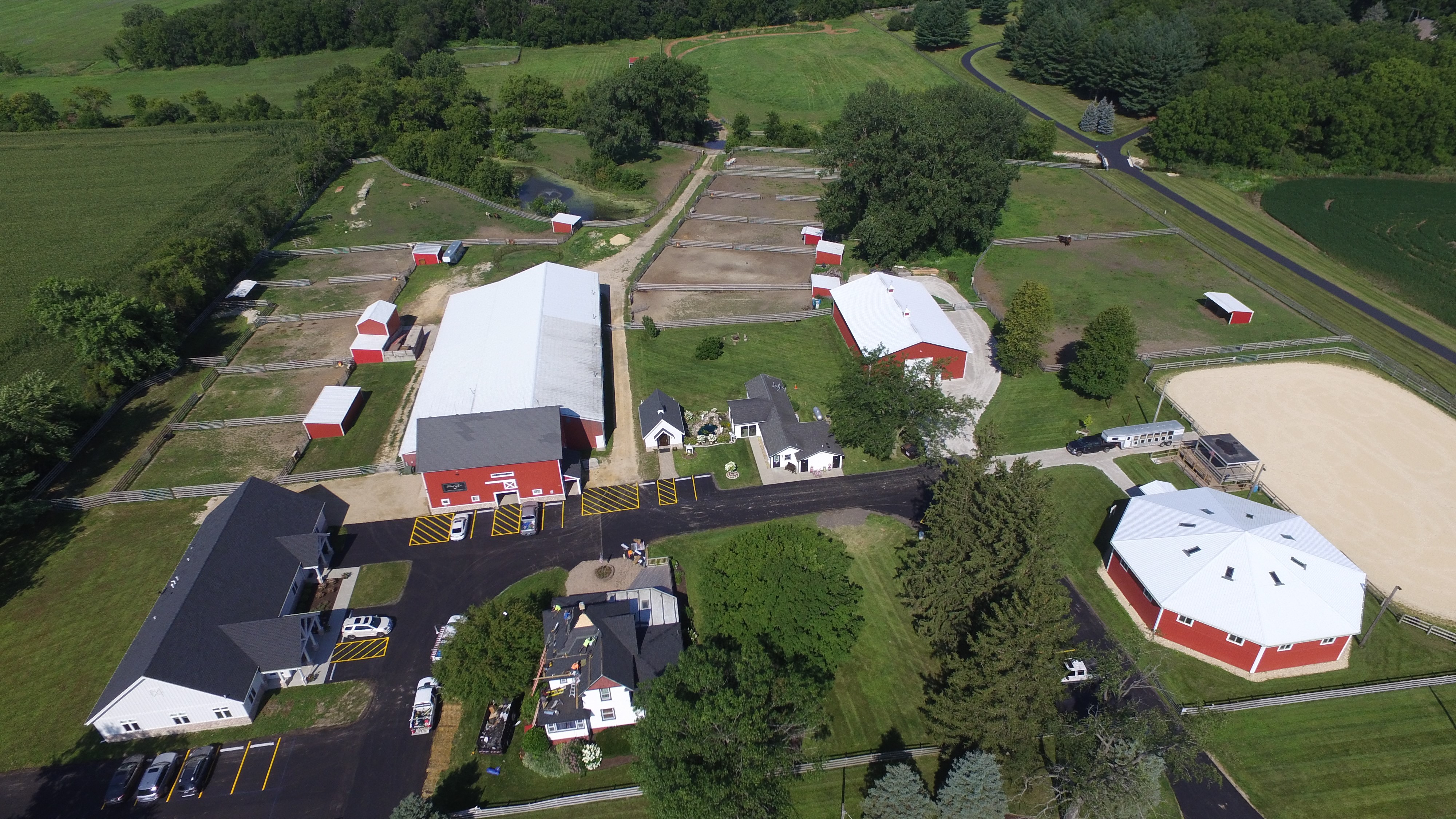
Regarding structures at this facility where horses are stalled:
Do horses have assigned stalls in the structure(s)? Yes
Do all stalls/enclosures allow horses to lie down, stand up and turn around? Yes
Is there adequate ceiling & beam height (a minimum of 12 feet above the tip of the horse's ear) when standing in all stalls/enclosures? Yes
How often are the stalls/enclosures cleaned? 6-7 Days a Week
Are floors constructed and maintained for both good drainage and traction? Yes
Is there a ventilation and circulation system in place to control temperature and prevent buildup of toxic gases? Yes
Is wiring inaccessible to horses and maintained for safety? Yes
Are fire prevention/protection measures (fire alarms, extinguishers and sprinkler systems) maintained and in good working order? Yes
Is there adequate lighting to ensure safety in all areas of facility? Yes
Are emergency contacts, including veterinarian contact information, conspicuously posted in easily accessible locations? Yes
Are human and equine first aid kits easily accessible? Yes
How many hours per day, on average, are horses stalled? 0-3;
How many hours per day, on average, are horses turned out:
Equines are out 16+ hours per day
Equines are out 24/7 except they are brought in to feed
Equines are out 24/7 except they are brought in if there is inclement weather
The following describes the pastures at this facility:
This facility has a written plan in place for pasture management, which includes guidelines for seeding, fertilizing, irrigation, mowing, dragging, harrowing, manure removal, removal of debris, the control of poisonous plants, and a schedule for cleaning
A dedicated staff person(s) is responsible for pasture management
All pastures are fenced to prevent escape or injury
Fencing checks, such as broken or missing planks, loose fence posts, exposed or loose nails, detached wires, etc., are done regularly
Pastures are rotated
Pastures have natural protection for equines (i.e., trees)
Pastures have man-made protection for equines (i.e., shelters)
This facility does not have pastures where equines can graze on pasture grass
Barbed wire is used for fencing
Electric fencing is used; electric wires or tape fence are visibly marked
The following describes the turnout areas other than pastures at this facility:
This facility has a written plan in place for the maintenance of turnout areas, which includes a schedule for cleaning, manure removal, and dragging
A dedicated staff person(s) is responsible for the maintenance of turnout areas
All turnout areas are fenced to prevent escape or injury
Turnout areas have man-made protection for equines (i.e., shelters)
Fencing checks, such as broken or missing planks, loose fence posts, exposed or loose nails, detached wires, etc., are done regularly
This facility does not have turnout areas
Barbed wire is used for fencing
Electric fencing is used; electric wires or tape fence are visibly marked
The following policies and procedures are in place at the facility to restrict public access and to keep horses safe:
A security guard is present at night
Equines are checked overnight
By Appointment Only signs are posted.
No Trespassing signs are posted
Hold Harmless signs are posted
Authorized Personnel Only signs are posted
Entrance gates are locked at night
Visitors are only permitted at specific times
Visitors are only permitted in specific areas
The property is fitted with motion lights
The perimeter of the property is fully fenced
The property owner, staff member or caretaker lives on the premises and ensures that public access is restricted and is responsible for the security of the facility and equines
The property is fitted with a security system monitored by police or a professional service
The property is fitted with a security system that is monitored internally by staff (or the property owner)
Equine Care/Emergency Preparedness: BraveHearts (*Main) 2024 and 2023 This section is required.
Horse Health Care/Barn Management Records: What system is used to collect and store health/horse care records?
Notebook or equivalent (technology not utilized)
Onsite computer with cloud-based backup storage system
The following items are consistent with our feed management plan and practices:
Equines are provided with individualized feeding plans, including supplements, according to age and any health issues
Feed plans are determined in consultation with a veterinarian
Supplement plans are determined in consultation with a veterinarian
Equines are fed in individual stalls
Staff and volunteers are trained in proper feed measurements and protocols and observed periodically to ensure they are feeding correctly
The feed chart is centrally located and updated as needed
The area(s) where hay, feed, grain, and supplements are stored are kept clean, free of debris and chemicals, and protected from weather and other animals in rodent-proof and mold-proof containers and grain bins
Feed, supplements and hay types are clearly labeled
Water sources, i.e., buckets, troughs, automatic waterers, etc. are kept clean, free of debris and chemicals, and protected from weather and other animals
Medications are kept in a locked, climate-controlled area
Equines are fed in groups
Do horses have access to clean drinking water at all times? Yes
Hoof Care: How often is hoof care provided for each equine? Every 4-8 weeks and when an issue arises
Dental Care: How often is dental care provided for each equine? Annually and when an issue arises
Horse checks: How often are equines visually and physically checked by personnel at the facility? Every day or 6 days a week
Parasite Control: Our organization has the following worming protocols in place: (Check all that apply
The protocol for each equine is determined in consultation with a veterinarian
A de-wormer is used without fecal testing
Fly/Insect Control: What remedies are used to control flies and insects?
Fly Traps and Tapes
Premise Sprays/Insecticides
Fly Spray Repellent
Fly Masks
Fans
The following represent the biosecurity practices in place at facility:
Our organization follows the AAEP's Biosecurity Guidelines and/or the UC Davis Biosecurity Guidelines
Our organization follows the biosecurity guidelines of our veterinarian
Sick, affected and/or quarantined equines do not have contact with other equines or other animals
The organization has a written biosecurity plan
All staff are trained in best practices related to biosecurity
All volunteers are trained in best practices related to biosecurity
Sick, affected and/or quarantined equines do not have contact with other equines or other animals
Restricted access signs are posted at primary points of access to sick, affected and/or quarantined equines
Hand sanitizers and footbaths are available at all primary points of access to sick, affected and/or quarantined equines
Manure and bedding from sick, affected and/or quarantined equines is disposed of in specific areas designated for infectious materials - not put in open air piles, and not spread on pastures
Stalls, aisle ways, and common areas are disinfected after conclusion of the quarantine
Trailers/vans used by sick, affected and/or quarantined equines are cleaned and disinfected after each use and cleaning takes place away from where equines are sheltered
Equipment used by sick, affected and/or quarantined equines is not shared and is clearly labeled
Shared equipment used by sick, affected and/or quarantined equines is cleaned of organic debris and disinfected after each use
Latex gloves are worn when working with sick, affected and/or quarantined equines
Personnel are required to leave the facility (or shower and change clothing) after working with quarantined equines
A specific individual is assigned to care for sick, affected and/or quarantined equines
Sick, affected and/or quarantined equines are cared for last if the caretaker must also care for healthy equines
Equines are not quarantined on arrival.
The following represent the manure removal practices in place at facility:
Manure is piled in an area where equines are not located
Manure piles are composted or spread on pastures
Our organization adheres to the manure management guidelines set by state and/or local authorities
Manure is stored in dumpster(s)
Manure piles are covered
Manure is hauled, sold or given away
The following steps are taken to help staff and volunteers readily identify each horse on the property:
Equines are assigned the same stall/location each day
Name plates are located on the stall
Equines wear halters with nametags
A notebook or binder with photos and information on each equine is easily accessible
A map/diagram is posted showing the location of each equine with equine names and photos
Equine photos and profiles are available on the website
Staff/volunteers are provided training on conformation, markings, colors, and breeds
Team leaders work with new staff/volunteers until they are able to identify the equines
Photos are located on the stall
Staff and volunteers are provided with an information packet with equine profiles, including photos and detailed descriptions
Our organization has the following policies and procedures in place pertaining to tack, apparel and equipment:
Saddles are shared
Saddle pads are shared
Bridles are shared
Bits are shared
Blankets are shared
Sheets are shared
Turnout apparel is shared
Blankets, sheets and turn out apparel are fitted and utilized for each equine appropriate to the equine's needs and the weather conditions
Blankets, sheets and turn out apparel are cleaned regularly as needed
Tack is cleaned only when needed
Tack is inspected for overall working condition before each use by trained personnel
Tack is assessed for fit before each use by trained personnel
Tack is assessed for fit by trained personnel when an equine's body condition changes
Tack is assessed for fit by trained personnel when an equine's disposition changes
This facility enlists the services of a professional saddle fitter at least once a year
Assigned tack is clearly labeled
Tack is stored in a climate-controlled location
Helmets are shared
Helmets are cleaned/disinfected after each use
Helmets are replaced after a fall
Helmets are replaced at least every five years.
All equines have specifically assigned tack, apparel and equipment that is not shared
Halters are shared
Tack is cleaned after each use
Tack is cleaned weekly
No equines are ridden; not applicable.
Emergency Preparedness: BraveHearts: *Main This section is required.
The following plans, policies, and procedures are in place at the facility to handle emergencies and address weather related issues, fire safety procedures, and/or any additional hazardous scenarios the facility could potentially experience:
Emergency procedures are posted prominently
Emergency phone numbers are posted prominently
The facility owns or has access to a generator
The facility maintains at least two weeks of hay, feed, shavings and medications
The facility collects and maintains medical information from staff, volunteers, and clients
The facility maintains appropriate liability and/or workers' compensation insurance
All staff/volunteers are briefed regularly on emergency preparedness/safety procedures
The organization has a written emergency preparedness/safety plan (EPP)
Local fire department and/or the state's emergency planning department procedures
Medical emergencies for clients, staff, and volunteers
Medical emergencies for equines
Evacuation plans
Fire
Natural Disasters - thunderstorm, hurricanes, earthquakes, tornados, etc
Protocols to notify emergency personnel
Building/facility exit plans
Power outages
Terrorist attacks
The facility follows the specific procedures to help PREVENT emergency situations:
Smoking is strictly prohibited
NO SMOKING signs are posted prominently
Hay is stored away from permanent or temporary structures where equines are stalled
Permanent or temporary structures where equines are stalled are kept free of dust, cobwebs, trash, cleaning rags, and other flammable items
Aisles and doorways are kept clear
Heaters with automatic shutoff settings are used
How often are the following checked or performed?
Fire Extinguishers are checked: Annually
Smoke detectors are checked: Annually
Electrical Systems are checked: Annually
Fence lines are checked: Weekly
Turnout Areas are checked: Daily
Sprinkler systems are checked: Annually
Fire drills are conducted: Semi-annually
Review of safety protocols with staff are conducted: Semi-annually
Review of safety protocols with volunteers are conducted: Semi-annually
The Emergency Preparedness Plan is reviewed and updated: Annually
Equine Transportation
2-horse van/trailer with truck:
1 Owned onsite 0 Access onsite but not owned 0 Access offsite;
3-horse van/trailer with truck:
0 Owned onsite 0 Access onsite but not owned 0 Access offsite;
4-horse van/trailer with truck:
0 Owned onsite 0 Access onsite but not owned 0 Access offsite;
6-horse van/trailer with truck:
1 Owned onsite 0 Access onsite but not owned 0 Access offsite;
8-horse van/trailer with truck:
1 Owned onsite 0 Access onsite but not owned 0 Access offsite;
10-horse van/trailer with truck:
0 Owned onsite 0 Access onsite but not owned 0 Access offsite;
BraveHearts at the Bergmann Center
4950 Il Route 173 Poplar Grove IL 61065
Contact: MEGGAN HILL-MCQUEENEY
Contact's Phone: 847-366-4571
Contact's Email: meggan@braveheartsriding.org
Currently operational
Total number of horses/equines currently involved with your programs, under your care, and/or owned by your organization at this facility: 22
Total number of horses at this facility INCLUDING those counted above: 22
Maximum capacity of horses at this facility: 40
Does your organization own, lease or use a part of this facility? Own
Provide the contact information for the individual or organization responsible for investigating abuse in the county where the facility is located, including mailing address, email address, and phone information.
Hooved Animal Humane Society 10804 McConnell Road Woodstock, IL815-337-5563 60098 815-337-5563
Does your organization conduct Equine Assisted Services (EAS) at this facility in accordance with the EQUUS Foundation Guidelines on Qualifications of Organizations Conducting Equine Assisted Services (EAS)? Yes
Total number of Equine Assisted Service Providers AT THIS FACILITY, including instructors, specialists, therapists, counselors, coaches and/or facilitators (full-time, part-time, volunteer, independent contractors, and/or providers accompanying clients) that conduct Equine Assisted Services (EAS) in accordance with the EQUUS Foundation Guidelines on Qualifications of Organizations Conducting Equine Assisted Services (EAS) AT THIS FACILITY: 17
Equine Assisted Service Providers Assigned to this Facility: (see Equine Assisted Service Provider Section below for details)
1. Amanda Bethards
2. Angie Colella
3. Ashley Kohanyi
4. Ben Jalove
5. Bill Mercurio
6. Christa Kokott
7. Erica Smith
8. Jamie Janssen Casey, Psy.D.
9. Jeanna Sorgani
10. Jenny McQuillan
11. Julia McIntyre
12. Kaleena Tolsma
13. Kelly Dinsmore
14. Kim Davis
15. Meggan Hill-McQueeney
16. Terese Klinger
17 -> 16 - The total number of Equine Assisted Service Providers entered for this facility does not match the number of Equine Assisted Service Providers assigned to this facility under in the Equine Assisted Service Provider Section
BraveHearts at the Bergmann Center
Veterinarian Information
Veterinarian: Dr. Vacek
Clinic Name: Kendall Road Equine Hospital
10N051 Kendall Rd,
Elgin IL 60124
Phone: 8474645598
Overview: BraveHearts at the Bergmann Center (Satellite)
Total number of horses/equines currently involved with your programs, under your care, and/or owned by your organization at this facility: 22
Total number of horses at this facility INCLUDING those counted above: 22
Maximum capacity of horses at this facility: 40
Total acreage dedicated specifically to the horses: 22
Our organization has use of the following at this facility:
Structures/Barns: 1 Run-in sheds: 6
Pastures: 5 Paddocks/Pens/Turnout Areas: 5
Uncovered Outdoor Rings: 1 Covered Outdoor Rings: 0 Indoor Rings: 2
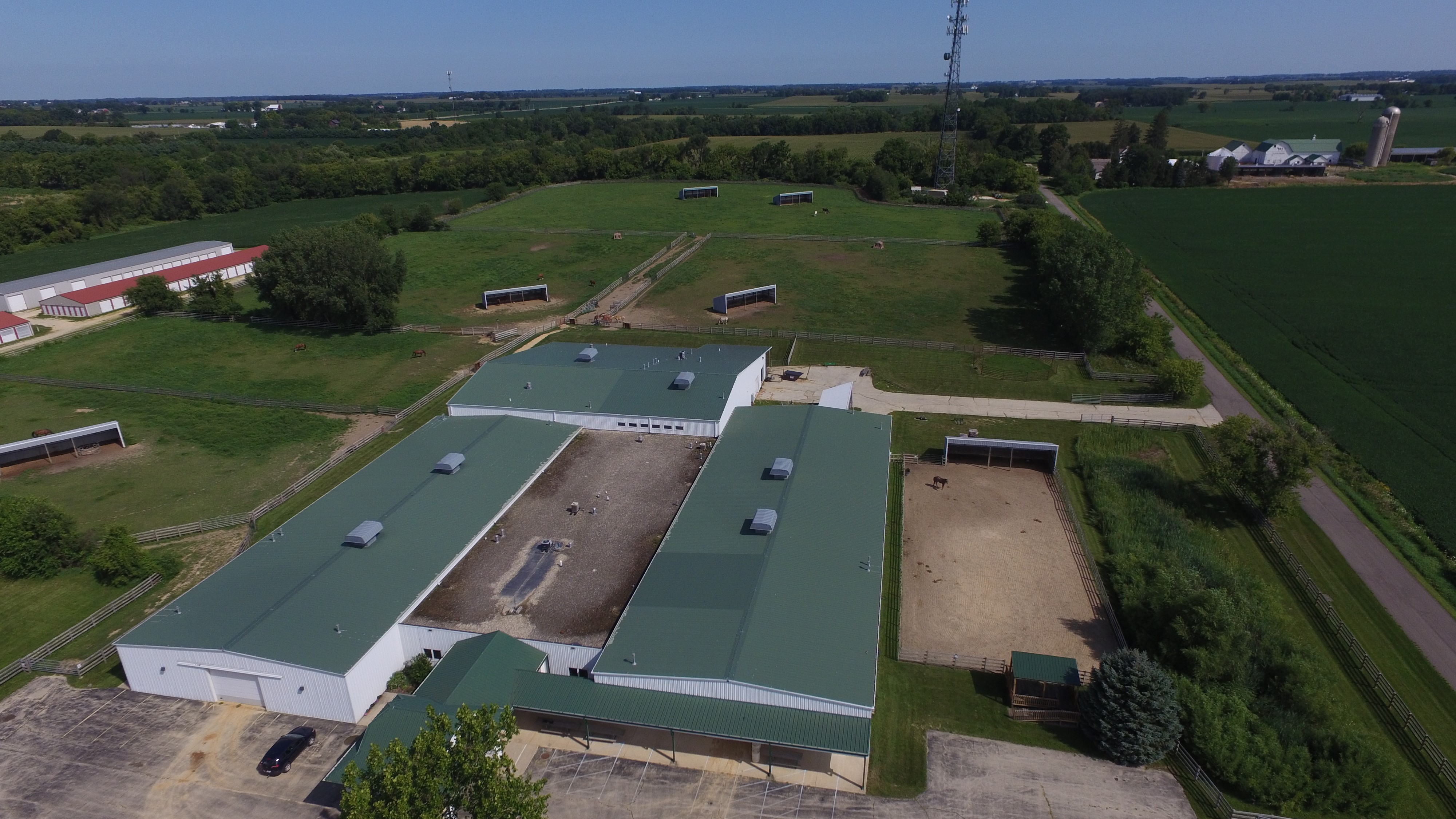
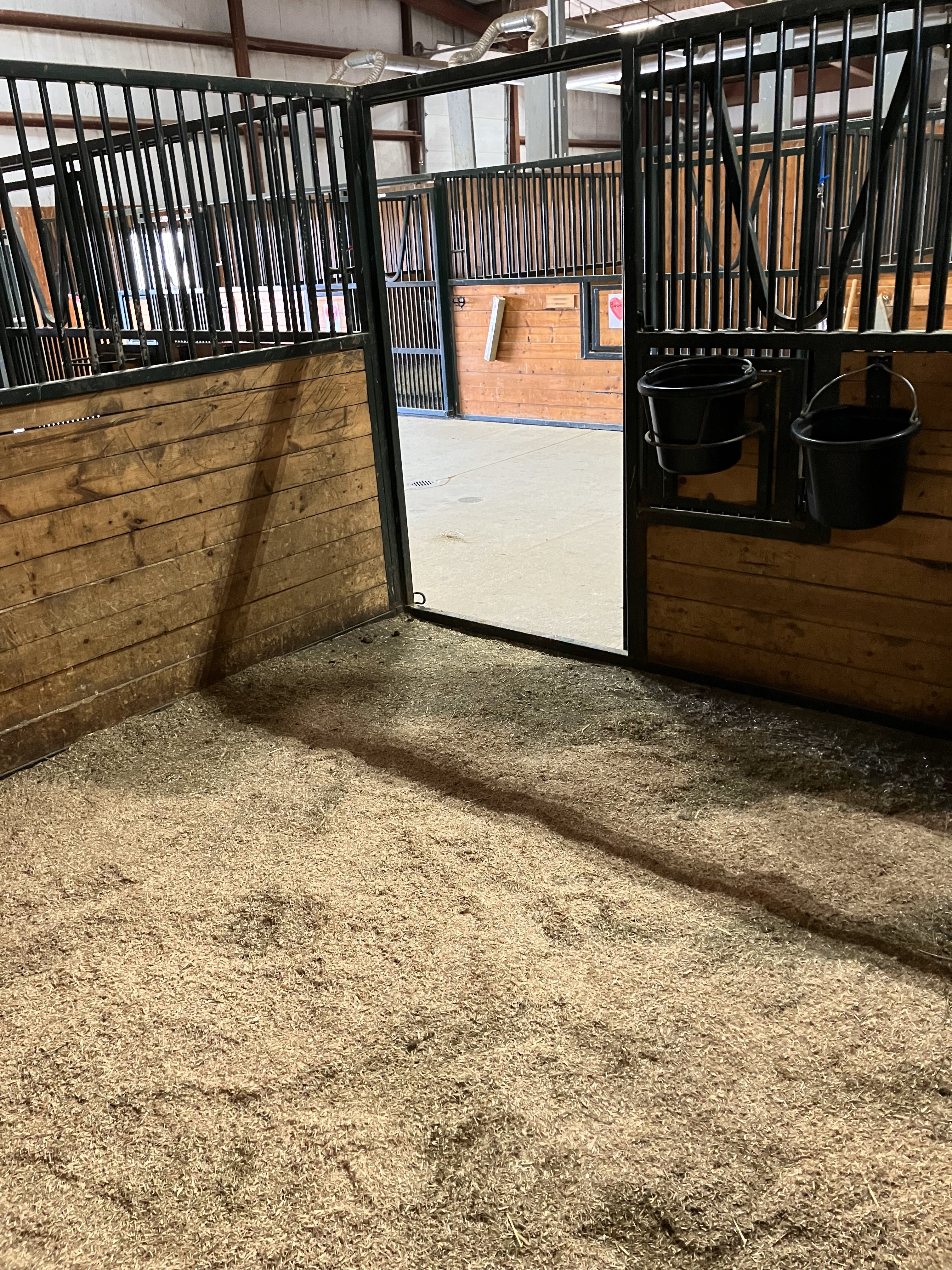
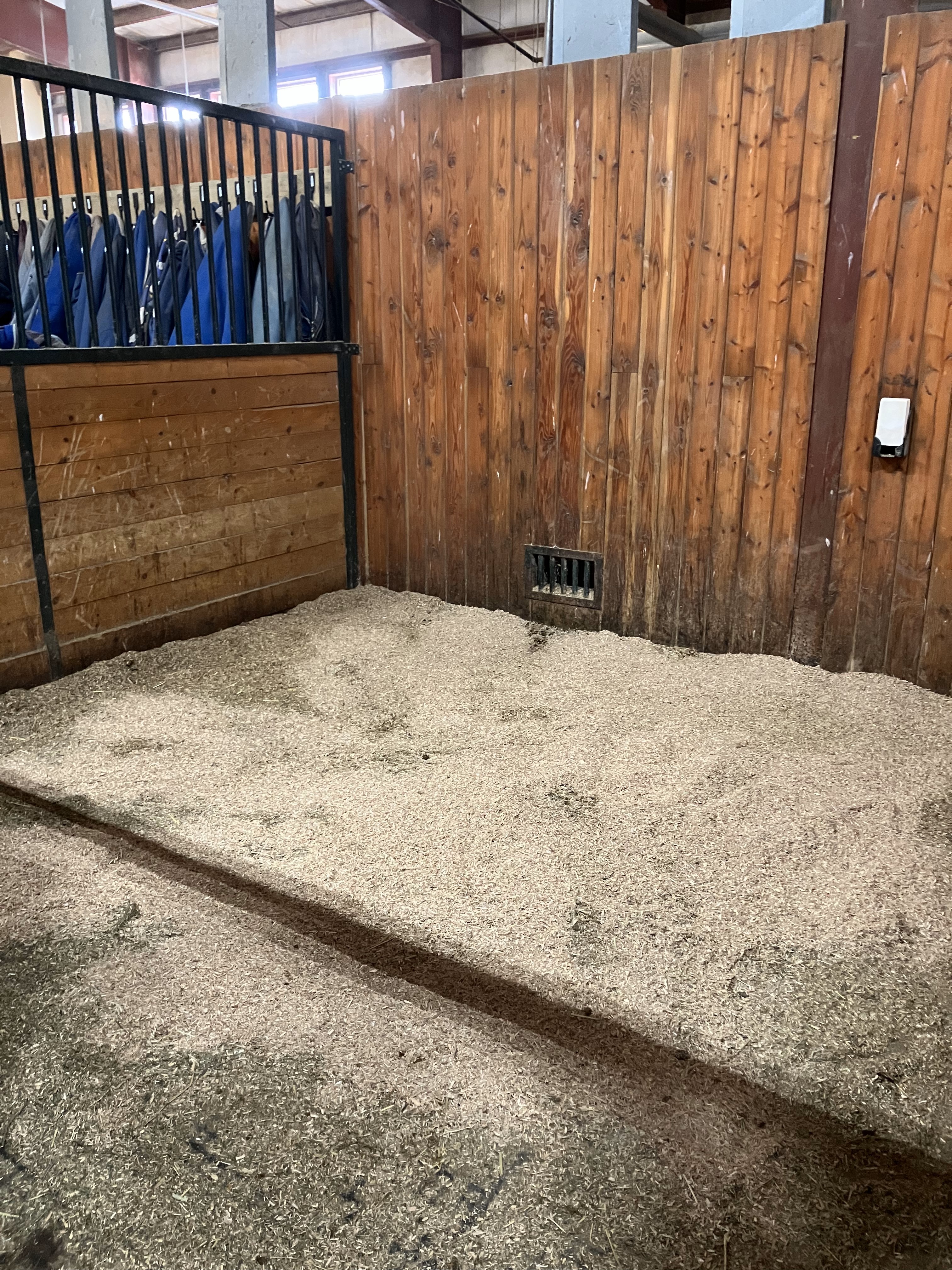
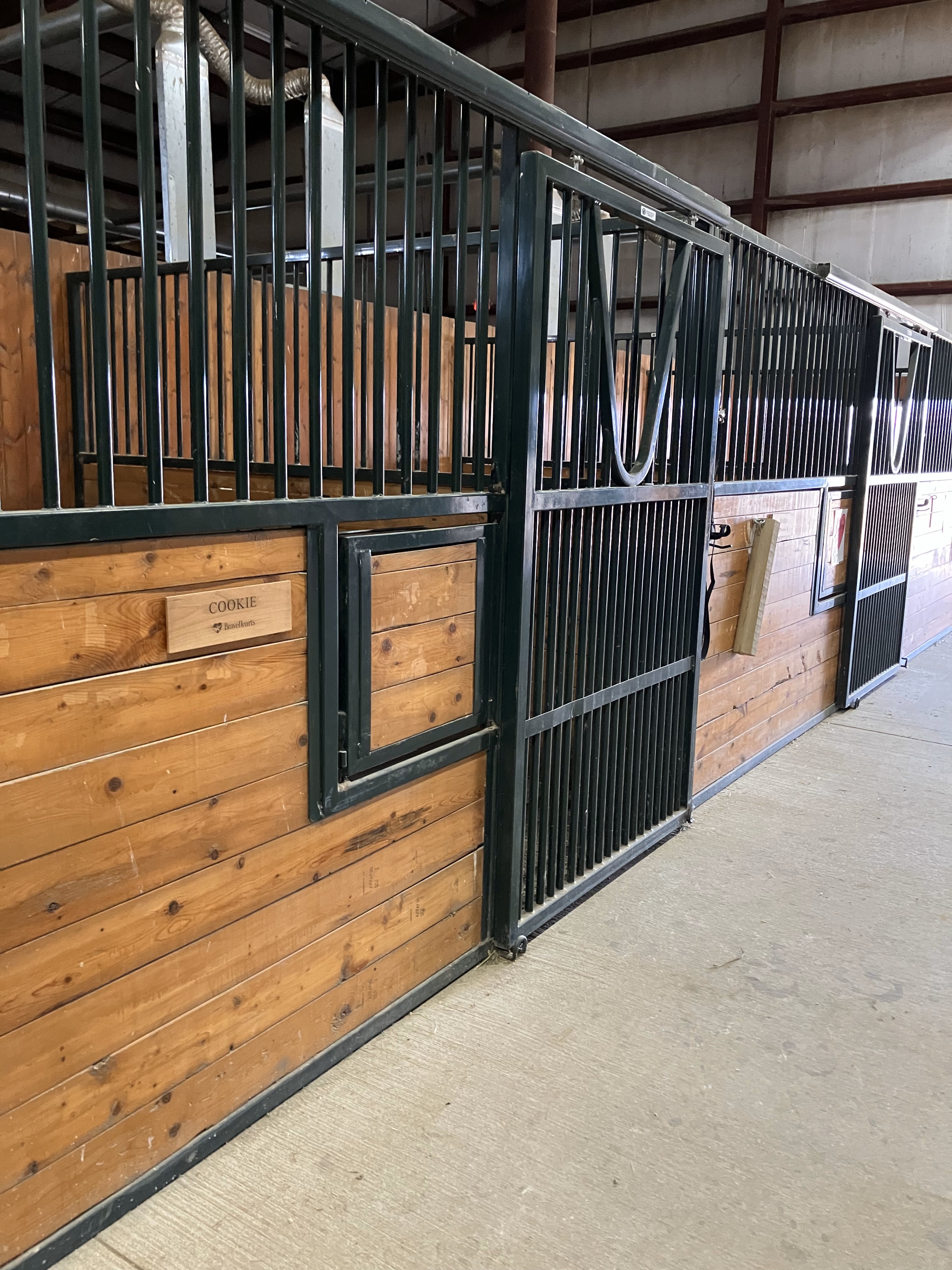
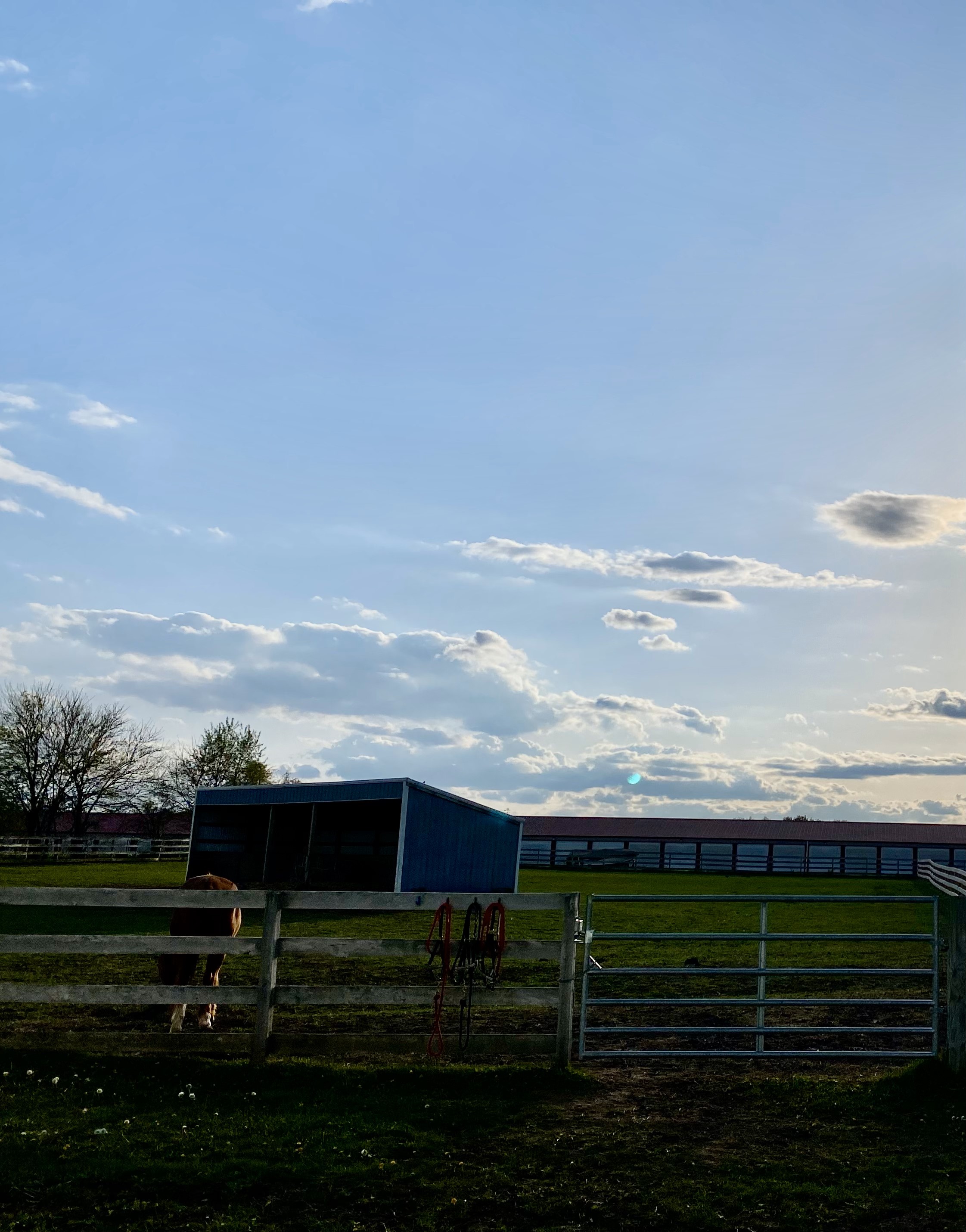
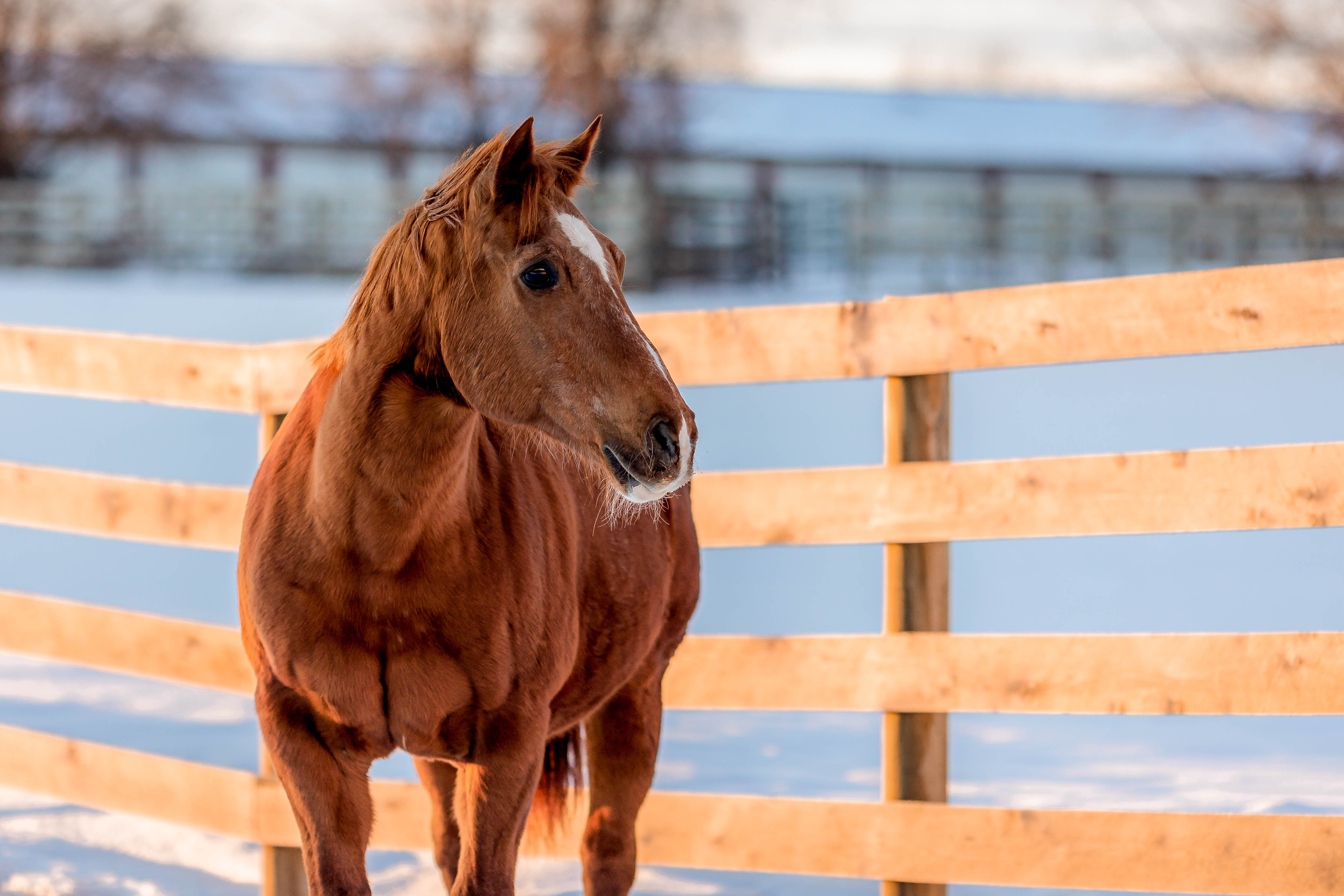
Regarding structures at this facility where horses are stalled:
Do horses have assigned stalls in the structure(s)? Yes
Do all stalls/enclosures allow horses to lie down, stand up and turn around? Yes
Is there adequate ceiling & beam height (a minimum of 12 feet above the tip of the horse's ear) when standing in all stalls/enclosures? Yes
How often are the stalls/enclosures cleaned? 6-7 Days a Week
Are floors constructed and maintained for both good drainage and traction? Yes
Is there a ventilation and circulation system in place to control temperature and prevent buildup of toxic gases? Yes
Is wiring inaccessible to horses and maintained for safety? Yes
Are fire prevention/protection measures (fire alarms, extinguishers and sprinkler systems) maintained and in good working order? Yes
Is there adequate lighting to ensure safety in all areas of facility? Yes
Are emergency contacts, including veterinarian contact information, conspicuously posted in easily accessible locations? Yes
Are human and equine first aid kits easily accessible? Yes
How many hours per day, on average, are horses stalled? 0-3;
How many hours per day, on average, are horses turned out:
Equines are out 24/7 except they are brought in to feed
Equines are out 24/7 except they are brought in if there is inclement weather
Equines are out 24/7 except when they are being trained
Equines are out 24/7 except when they are used for the conduct of the organization's programs
The following describes the pastures at this facility:
This facility has a written plan in place for pasture management, which includes guidelines for seeding, fertilizing, irrigation, mowing, dragging, harrowing, manure removal, removal of debris, the control of poisonous plants, and a schedule for cleaning
A dedicated staff person(s) is responsible for pasture management
All pastures are fenced to prevent escape or injury
Fencing checks, such as broken or missing planks, loose fence posts, exposed or loose nails, detached wires, etc., are done regularly
Pastures are rotated
Pastures have natural protection for equines (i.e., trees)
Pastures have man-made protection for equines (i.e., shelters)
This facility does not have pastures where equines can graze on pasture grass
Barbed wire is used for fencing
Electric fencing is used; electric wires or tape fence are visibly marked
The following describes the turnout areas other than pastures at this facility:
This facility has a written plan in place for the maintenance of turnout areas, which includes a schedule for cleaning, manure removal, and dragging
A dedicated staff person(s) is responsible for the maintenance of turnout areas
All turnout areas are fenced to prevent escape or injury
Turnout areas have man-made protection for equines (i.e., shelters)
Fencing checks, such as broken or missing planks, loose fence posts, exposed or loose nails, detached wires, etc., are done regularly
This facility does not have turnout areas
Barbed wire is used for fencing
Electric fencing is used; electric wires or tape fence are visibly marked
The following policies and procedures are in place at the facility to restrict public access and to keep horses safe:
A security guard is present at night
Equines are checked overnight
By Appointment Only signs are posted.
No Trespassing signs are posted
Hold Harmless signs are posted
Authorized Personnel Only signs are posted
Entrance gates are locked at night
Visitors are only permitted at specific times
Visitors are only permitted in specific areas
The property is fitted with motion lights
The perimeter of the property is fully fenced
The property owner, staff member or caretaker lives on the premises and ensures that public access is restricted and is responsible for the security of the facility and equines
The property is fitted with a security system monitored by police or a professional service
The property is fitted with a security system that is monitored internally by staff (or the property owner)
Equine Care/Emergency Preparedness: BraveHearts at the Bergmann Center (Satellite) 2024 and 2023 This section is required.
Horse Health Care/Barn Management Records: What system is used to collect and store health/horse care records?
Notebook or equivalent (technology not utilized)
Onsite computer with cloud-based backup storage system
The following items are consistent with our feed management plan and practices:
Equines are provided with individualized feeding plans, including supplements, according to age and any health issues
Feed plans are determined in consultation with a veterinarian
Supplement plans are determined in consultation with a veterinarian
Equines are fed in individual stalls
Staff and volunteers are trained in proper feed measurements and protocols and observed periodically to ensure they are feeding correctly
The feed chart is centrally located and updated as needed
The area(s) where hay, feed, grain, and supplements are stored are kept clean, free of debris and chemicals, and protected from weather and other animals in rodent-proof and mold-proof containers and grain bins
Feed, supplements and hay types are clearly labeled
Water sources, i.e., buckets, troughs, automatic waterers, etc. are kept clean, free of debris and chemicals, and protected from weather and other animals
Medications are kept in a locked, climate-controlled area
Equines are fed in groups
Do horses have access to clean drinking water at all times? Yes
Hoof Care: How often is hoof care provided for each equine? Every 4-8 weeks and when an issue arises
Dental Care: How often is dental care provided for each equine? Annually and when an issue arises
Horse checks: How often are equines visually and physically checked by personnel at the facility? Every day or 6 days a week
Parasite Control: Our organization has the following worming protocols in place: (Check all that apply
The protocol for each equine is determined in consultation with a veterinarian
A de-wormer is used without fecal testing
Fly/Insect Control: What remedies are used to control flies and insects?
Fly Traps and Tapes
Premise Sprays/Insecticides
Fly Spray Repellent
Fly Masks
Fly Sheets
Fans
The following represent the biosecurity practices in place at facility:
Our organization follows the AAEP's Biosecurity Guidelines and/or the UC Davis Biosecurity Guidelines
Our organization follows the biosecurity guidelines of our veterinarian
Sick, affected and/or quarantined equines do not have contact with other equines or other animals
The organization has a written biosecurity plan
All staff are trained in best practices related to biosecurity
Sick, affected and/or quarantined equines do not have contact with other equines or other animals
Restricted access signs are posted at primary points of access to sick, affected and/or quarantined equines
Hand sanitizers and footbaths are available at all primary points of access to sick, affected and/or quarantined equines
Manure and bedding from sick, affected and/or quarantined equines is disposed of in specific areas designated for infectious materials - not put in open air piles, and not spread on pastures
Stalls, aisle ways, and common areas are disinfected after conclusion of the quarantine
Trailers/vans used by sick, affected and/or quarantined equines are cleaned and disinfected after each use and cleaning takes place away from where equines are sheltered
Equipment used by sick, affected and/or quarantined equines is not shared and is clearly labeled
Shared equipment used by sick, affected and/or quarantined equines is cleaned of organic debris and disinfected after each use
Latex gloves are worn when working with sick, affected and/or quarantined equines
Personnel are required to leave the facility (or shower and change clothing) after working with quarantined equines
All volunteers are trained in best practices related to biosecurity
A specific individual is assigned to care for sick, affected and/or quarantined equines
Sick, affected and/or quarantined equines are cared for last if the caretaker must also care for healthy equines
Equines are not quarantined on arrival.
The following represent the manure removal practices in place at facility:
Manure is piled in an area where equines are not located
Manure piles are covered
Manure piles are composted or spread on pastures
Our organization adheres to the manure management guidelines set by state and/or local authorities
Manure is stored in dumpster(s)
Manure is hauled, sold or given away
The following steps are taken to help staff and volunteers readily identify each horse on the property:
Equines are assigned the same stall/location each day
Name plates are located on the stall
Equines wear halters with nametags
A notebook or binder with photos and information on each equine is easily accessible
A map/diagram is posted showing the location of each equine with equine names and photos
Equine photos and profiles are available on the website
Team leaders work with new staff/volunteers until they are able to identify the equines
Photos are located on the stall
Staff and volunteers are provided with an information packet with equine profiles, including photos and detailed descriptions
Staff/volunteers are provided training on conformation, markings, colors, and breeds
Our organization has the following policies and procedures in place pertaining to tack, apparel and equipment:
Saddles are shared
Saddle pads are shared
Bridles are shared
Bits are shared
Blankets, sheets and turn out apparel are fitted and utilized for each equine appropriate to the equine's needs and the weather conditions
Blankets, sheets and turn out apparel are cleaned regularly as needed
Tack is cleaned only when needed
Tack is inspected for overall working condition before each use by trained personnel
Tack is assessed for fit before each use by trained personnel
Tack is assessed for fit by trained personnel when an equine's body condition changes
Tack is assessed for fit by trained personnel when an equine's disposition changes
This facility enlists the services of a professional saddle fitter at least once a year
Assigned tack is clearly labeled
Tack is stored in a climate-controlled location
Helmets are shared
Helmets are cleaned/disinfected after each use
Helmets are replaced after a fall
Helmets are replaced at least every five years.
All equines have specifically assigned tack, apparel and equipment that is not shared
Blankets are shared
Sheets are shared
Turnout apparel is shared
Halters are shared
Tack is cleaned after each use
Tack is cleaned weekly
No equines are ridden; not applicable.
Emergency Preparedness: BraveHearts at the Bergmann Center: Satellite This section is required.
The following plans, policies, and procedures are in place at the facility to handle emergencies and address weather related issues, fire safety procedures, and/or any additional hazardous scenarios the facility could potentially experience:
Emergency procedures are posted prominently
Emergency phone numbers are posted prominently
The facility owns or has access to a generator
The facility maintains at least two weeks of hay, feed, shavings and medications
The facility collects and maintains medical information from staff, volunteers, and clients
The facility maintains appropriate liability and/or workers' compensation insurance
All staff/volunteers are briefed regularly on emergency preparedness/safety procedures
The organization has a written emergency preparedness/safety plan (EPP)
Local fire department and/or the state's emergency planning department procedures
Medical emergencies for clients, staff, and volunteers
Medical emergencies for equines
Evacuation plans
Fire
Natural Disasters - thunderstorm, hurricanes, earthquakes, tornados, etc
Protocols to notify emergency personnel
Building/facility exit plans
Power outages
Terrorist attacks
The facility follows the specific procedures to help PREVENT emergency situations:
Smoking is strictly prohibited
NO SMOKING signs are posted prominently
Hay is stored away from permanent or temporary structures where equines are stalled
Permanent or temporary structures where equines are stalled are kept free of dust, cobwebs, trash, cleaning rags, and other flammable items
Aisles and doorways are kept clear
Heaters with automatic shutoff settings are used
How often are the following checked or performed?
Fire Extinguishers are checked: Annually
Smoke detectors are checked: Annually
Electrical Systems are checked: Annually
Fence lines are checked: Weekly
Turnout Areas are checked: Daily
Sprinkler systems are checked: Not at all/NA
Fire drills are conducted: Semi-annually
Review of safety protocols with staff are conducted: Semi-annually
Review of safety protocols with volunteers are conducted: Semi-annually
The Emergency Preparedness Plan is reviewed and updated: Annually
Equine Transportation
2-horse van/trailer with truck:
1 Owned onsite 0 Access onsite but not owned 1 Access offsite;
3-horse van/trailer with truck:
0 Owned onsite 0 Access onsite but not owned 0 Access offsite;
4-horse van/trailer with truck:
0 Owned onsite 0 Access onsite but not owned 1 Access offsite;
6-horse van/trailer with truck:
1 Owned onsite 0 Access onsite but not owned 0 Access offsite;
8-horse van/trailer with truck:
1 Owned onsite 0 Access onsite but not owned 1 Access offsite;
10-horse van/trailer with truck:
0 Owned onsite 0 Access onsite but not owned 0 Access offsite;